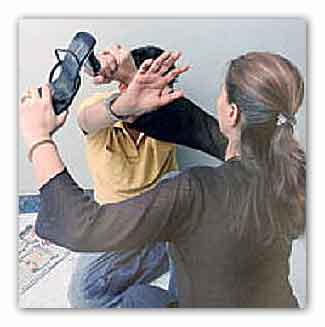|
Dating violence happens, and it's more common than we think, said Dr. Yolanda Evans, an assistant professor of pediatrics in the division of adolescent medicine at Seattle Children's Hospital. We need to talk to teens about it.
Dating violence is something no parent or family would want for their teen. Deciding when a teen should be allowed to date is tough enough. Thoughts going through a parent’s mind may include worries about sex or heart break, but how many parents think about abusive
relationships?

Unfortunately, about 10% of high school students nationwide report being slapped, hit, or physically hurt on purpose by a boyfriend or girlfriend. This number does not capture the number of teens who may be harrassed, stalked via phone calls/text messages, or verbally abused. Dating violence or abuse can often be secretive. The abusive partner often seeks to control the relationship and may state what the other teen can wear, who they can hang out with, and what activities they can participate in.
Dating violence encompasses physical, emotional and sexual abuse, the CDC notes. Physical acts include such things as hitting, shoving, pinching and kicking Emotional abuse could be threatening a dating partner or harming the person's self-worth by bullying, shaming, name-calling or isolating him or her from friends and family. Sexual abuse involves forcing someone into sexual activity that he or she doesn't want to participate in and includes sexual activity teens can't consent to because they've been
drugged.
A study in the January issue of Pediatrics found that teens who had experienced dating violence were more likely to binge drink, smoke, have depression symptoms, think about suicide and experience additional intimate partner violence than were their peers who'd never experienced dating
violence.
Teens who've been abused by their boyfriend or girlfriend are also more likely to do poorly at school, to experiment with drugs and to have an eating disorder, according to the CDC. Those abused in high school are more apt to be abused in college as
well.
Nancy Diaz, a domestic violence consultant who has provided services to Outreach in New York City, said that when she explains verbal abuse to teens, many think it's just normal conversation. Often their own mothers, who may be young, have spoken to them in just that way. "It's the cycle of violence," Diaz
said.
If a teen girl slaps a teen boy, the boy often says it's not abuse because it doesn't hurt, but Diaz explains that it is. She said that some gangs initiate girls by forcing them to have sex with all of the gang's members. "That's rape, but the girls don't think of it as rape," Diaz
said.
For parents, protection starts with knowing the person their teen is dating. "Invite them in, or offer to drive them somewhere," Evans said. "Just make sure you know who they're connecting
with."
Discovering that abuse is occurring can be hard, but "watch out for social isolation, withdrawal from friends and activities," Evans said. "Look for sores, bruises or scratches, and check out what they're doing on social media like Facebook and
Tumblr."
Diaz said that a girl's sudden change in the way she dresses also could be a sign of abuse. She might be covering hickeys, or her boyfriend might want her to dress differently so that she doesn't attract other
boys.
Here are some warning signs to look
for:
Be aware of certain behaviors. If your teen gets upset when their phone is off or if your teen’s partner is constantly texted, calling, or instant messaging them, this is an alert of possible possessive
behavior.
Look for social withdrawal from
friends.
Intermittently look at your teen’s social media page (such as a facebook or twitter account) to see what is posted. Posts that are humiliating or degrading are signs that something is not
right.
If you see bruises or scratches in unsual places, this is concerning. Ask where the bruise came from and if the story sounds untrue, dig a little
deeper.
Here are ways parents can help stop or prevent dating
violence:
Be a role model for appropriate behavior in intimate relationships.
Talk with them early about what a supportive relationship looks and feels
like.
Know your teen’s boyfriend/girlfriend. Invite them over for dinner or watch a movie
together.
Talk with your teen. Ask them how they feel about their partner. Ask what activities they’re doing and who they are hanging out
with.
Don’t blame or yell at them if you discover abuse is occuring. It is extremely important to keep the lines of communication open.
Finally, there are many websites designed for teens and parents with more information on this topic. Look at Love is Not Abuse for facts on abusive relationships and ways to prevent dating violence and Teens Experiencing Abusive Relationships for hotlines and
resources.
Whether a teen's school can help, however, may not be certain. Researchers reported in the August issue of Pediatrics that more than 80 percent of U.S. schools had no protocol for helping teens who were experiencing dating violence. Still, 61 percent of school counselors said that teens had approached them for advice about dating
violence.
For more information
Seattle
Children’s Hospital, Research and Foundation
(MDN)
|
![]()